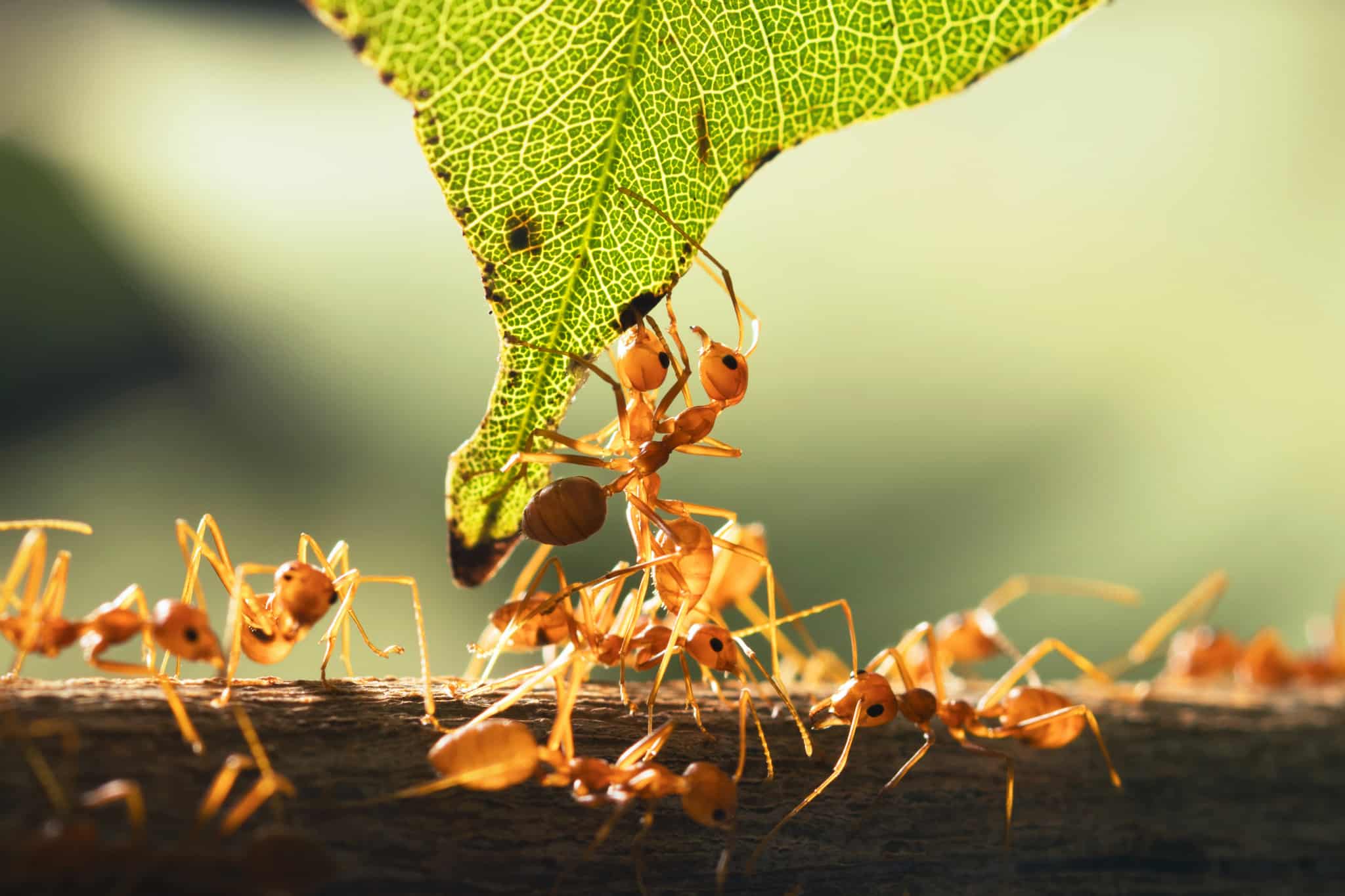Ants are a common sight in the summer and while they usually go about their business without causing too much trouble, the appearance of a large swarm of ants outside or in the home can be quite a shock. Ants will make their first appearance out of hibernation as the weather starts to warm, which subsequently is when we start leaving tasty our picnic food around for them to feast upon. Here are my top tips and advice for how best to help the ants in your home and garden.
Super scavengers
Ants have colonised every continent on earth, except Antarctica. They have also survived the comet which wiped out the dinosaurs, making them one of the most resilient species on the planet. But the good news is they are natural scavengers and are more helpful than people first think.
As they go about their business, they will collect dead insects, eating their eggs and fertilizing the soil for you free of charge. Ants can carry over three times their own weight, an impressive amount considering their small size.
Ants are useful little soldiers, they will establish nests in the cracks in walls, under the pavement and in lawns and flower beds. Tunneling their way through, allows nutrients to flow right to the plant roots.
They can also serve as a source of food for birds and other wildlife, introducing more desired visitors to your garden.

Signs of an ant problem

As much as ants can be useful to have around, so it’s best to accept ant colonies within your green space and work with them to support a diverse thriving ecosystem.
However, if they’re in high numbers, they can begin to affect your plants or become a pest. If you see ants around the garden or house and especially lines of ants forming a pathway, then it its likely that you could have an ant infestation in the vicinity.
Another tell-tale sign is small mounds of fine sand or soil, where the ants have built a nest, bringing this fine material to the surface in the process. If you have these in your home or garden, don’t panic!
Here are some of the ways you can manage and prevent any unwanted ant invasions.
Ants can establish a nest in almost any environment. So, no matter how clean and tidy your garden is, you might still have to share it with hundreds or even thousands of little neighbours. However, making sure items, like bins and rubbish are cleared away and secured will lessen the chance of ants being drawn into your garden.
Anti-ant plants
What many people don’t know, is that some plants can deter ants from building colonies nearby, due to their strong fragrance. This includes several plants from the Lamiaceae (Mint) family.
Choose Mentha balsamea (Peppermint), Ocimum basilicum (Basil), Origanum vulgare (Oregano) and Salvia officinalis (Garden Sage).
The strong smell of these plants apparently confuses ants by masking the pheromones they use to communicate.
This makes a great use of incorporating fresh herbs into your kitchen to cook with and if you love the unique smell of Lavendula (lavender), then you’re in luck, as this also a known ant deterrent.

Moving in

As with any garden pest, the appearance of them inside the house can be a cause for concern. Fortunately, there are several simple ways you can prevent them from crossing the threshold and using your house as a free buffet.
In most cases, ants venturing inside the house are looking for food, and if they find any, you could have hundreds of ants trying to enter your home.
To prevent this, make sure food is cleared away and stored properly.
Also make sure that surfaces are wiped down or swept of any crumbs.
If the problem persists, block off any likely entry points or get creative and apply some peppermint essential oil to the area.
Similar to the plant, peppermint oil has a strong fragrance that interferes with ant pheromones and is strong enough to deter them.
Likewise, you can use borax mixed with water or mixed with a bait like honey or peanut butter.
Borax is a natural compound which is used in a number of household products and is not harmful to humans.
It interferes with the ant’s digestive system, allowing enough time for them to bring it into the colony and share it with other ants, eliminating most of the colony in the process.
Since ants follow each other’s pheromones, wipe down any surfaces that have been crossed by ants with a water and vinegar mix. This will get rid of the pheromones and prevent any ants from following the trail.

Facts about ants
-
- The most common ant in the UK is the Lasius niger or Black Garden Ant, followed by the Myrmica rubra or Red Ant.
-
- Ants are older than humans and have been around for at least 110 million years ago, compared to the roughly 200,000 years of modern humans.
-
- All worker ants are sterile females. The only other female in an ant colony is the queen. Male ants are come out once a year to mate with potential queens and then, having fulfilled their purpose, they die, leaving the queen to set up a new colony.

Leave A Comment